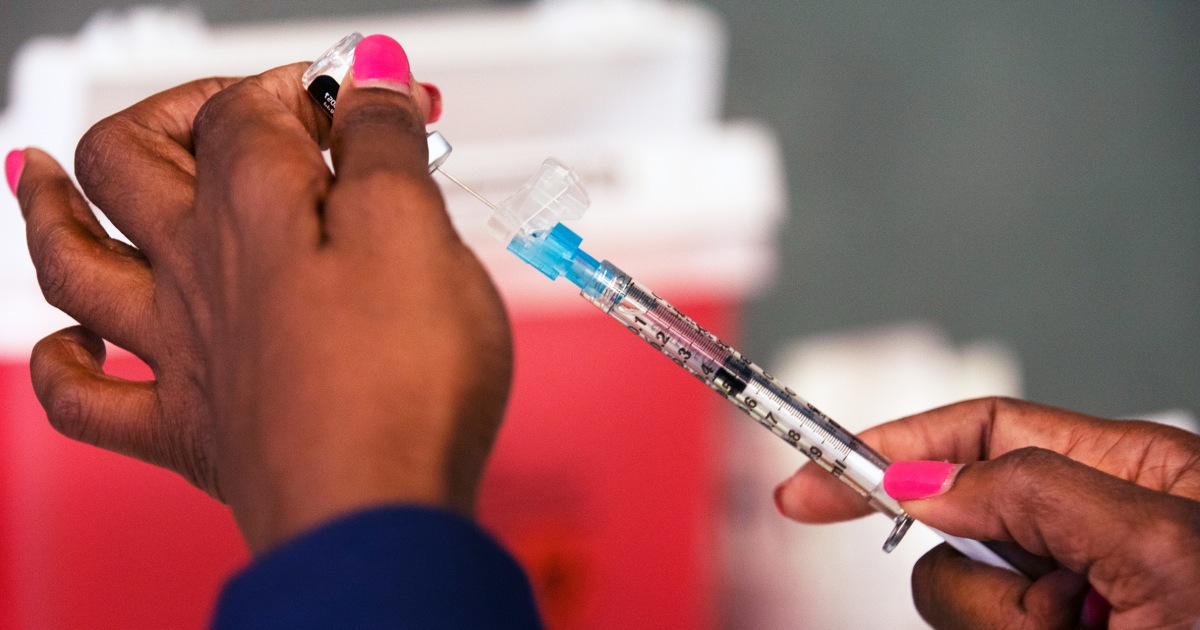A sense of unease permeated the Food and Drug Administration’s vaccine advisory committee meeting Thursday.
The advisers had convened for what’s become a standard practice over the past few years: selecting a new strain for the fall’s updated Covid vaccines.
Complicating matters, however, were new FDA rules for the updated Covid vaccines, announced just days earlier, that would restrict access of the shots to only the most at-risk Americans.
Under the rules, updated Covid vaccines for healthy children and adults under 65 must undergo additional placebo-controlled clinical trials — meaning some people would get the actual vaccine while others would get an inactive substance like a saline shot.
The original Covid vaccines, approved in late 2020, went through this process. Since then, drugmakers transitioned over to a flu-vaccine model, using smaller studies to test whether the shots generated an immune response against the variant in question.
New Covid vaccines for another group — adults 65 and up and kids and adults with at least one medical condition that puts them at risk for severe illness — were exempted from the new requirement, meaning additional clinical trials aren’t needed.
Committee members grappled with a tough choice: recommend updating the vaccine, which could make it more effective but harder for healthy kids and adults to get, or stick with the current version, which might not work as well but would be easier for more people to access.
“For example, if a different strain was selected for this season, would that require additional clinical trials?” committee member Dr. Sarah Meyer, chief medical officer of the immunization services division at the Centers for Disease Control and Prevention’s National Center for Immunization and Respiratory Diseases, asked at one point.
Ultimately, the committee unanimously voted to stick with vaccines targeting JN.1 or its lineages — the same strains used in the current shots. (Novavax’s shot targets JN.1; Pfizer’s and Moderna’s shots target KP.2, a descendant of JN.1.)
The committee’s vote is only a recommendation, and the FDA doesn’t have to follow its advice.
After the vote, anxiety lingered over the committee’s decision.
“I wanted to know if we change strains, can we assume that age-specific licensure won’t change for any of these products?” said committee member Dr. Henry Bernstein, a professor of pediatrics at Zucker School of Medicine at Hofstra/Northwell in New York.
Dr. Arnold Monto, the committee’s chair, noted “a feeling of somewhat unease” over what he said would normally be an easy decision: picking the predominant strain.
Jerry Weir, director of the Division of Viral Products in the Office of Vaccines Research and Review at the FDA, said that he didn’t have an answer on who would be able to get the shots this fall, saying the agency was still working out details with the drugmakers.
Still, FDA officials sought to allay committee members’ concerns.
“Our goal is not to impact a timely availability of vaccines, but we’re really looking to all of you to give us your best judgement,” Dr. David Kaslow, the director of the FDA’s Office of Vaccines Research and Review.
The Vaccines and Related Biological Products Advisory Committee is a group of outside scientists, doctors and public health experts that gives advice to the FDA on vaccines — including whether a vaccine is safe and effective, and whether it should be approved.
The members are temporary, often serving in four-year terms.
They must be highly qualified in areas like virology, infectious diseases and public health. They are required to report any professional or financial ties that might influence their judgment.
If a conflict is found, they might be recused, or allowed to participate with restrictions, such as not being allowed to vote.
Dr. Vinay Prasad, the FDA’s new vaccine chief, told the panel that limiting access to older adults and people with underlying conditions would put the U.S. in line with Western Europe and other nations.
The European Centre for Disease Prevention and Control says Covid vaccination efforts should focus on protecting people at risk of severe illness, such adults 60 and up, people with weakened immune systems and those with underlying medical conditions.
“Ultimately, we still want to give people a little more time to digest the policy,” Prasad said. “We’re still interested in soliciting questions and feedback and thoughts.”
Dorit Reiss, a vaccine policy expert at the University of California, San Francisco, said she thinks the FDA will follow the committee’s recommendation.
“But they already announced they will take a different approach to licensing it, limiting it to certain group, and they did not put that in front of the committee at all,” Reiss said.



